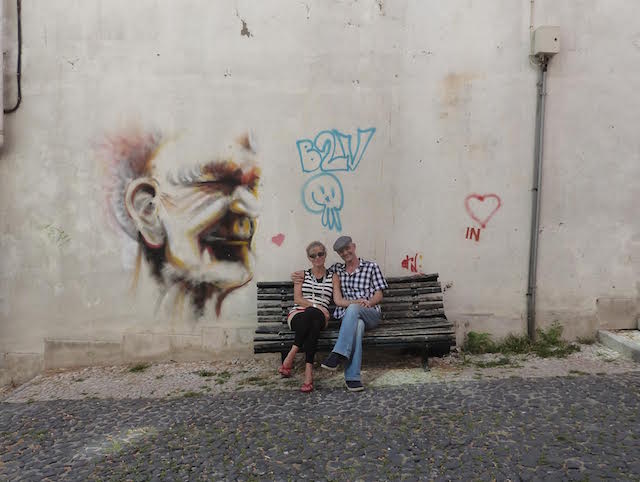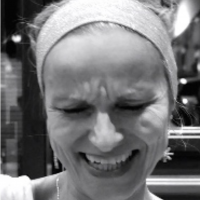
The Cleansing Effect of Relational Proximity.
Love—a topic nobody can really escape. We may avoid thinking about engineering or agriculture, if we choose to. But every single one of us has to deal with love in one way or another: either because we are enjoying it, or we are struggling with it, or simply because we are missing it.
Undoubtedly, falling in love is one of the most memorable experiences in our lives—as close as it gets to heaven…if reciprocated. Yet, as we all know, this heavenly state so easily turns into hell.
What is going on here?
Both my own marriage of almost 30 years and my work as a counselor and coach have taught me that relationships do follow certain laws. Although there is no such thing as a “recipe for successful relationships,” understanding and honoring these principles can be a crucial step towards a happier life as a couple.
I have found that one of the major reasons for relationship-failures are wrong expectations, strongly fed by Hollywood and the media at large. “Happily ever after” stories give us the idea that all we have to do is find the “right” partner and then simply enjoy the ride, from bliss to bliss. Well, guess what:
That’s not true.
Fact is, once we have found each other, it’s time to roll up our sleeves and let the adventure begin!
Relationships are not primarily about fun—this is important to understand. Don’t get me wrong, fun will always be important in our lives together, a major life-line in fact; it’s also what pulls us in to begin with, when dopamine gets us dancing in this effortless flow between giving and receiving.
But love-relationships go through different stages; falling in love is just the first one. The actual purpose of our relational journey, I believe, is inner healing and personal growth. In our endeavors for deeper understanding and connection we are continuously challenged to move out of our comfort-zone, to question and be questioned. This can be fun and exciting, but it can also be confusing and painful.
In order to demonstrate the nature of intimate relationships I like to use the following metaphor:
Imagine you meet this perfect person, beautiful, flawless, easy and fun. You fall in love with each other. You give your “yes” and move in together. Surprisingly, this proximity has an unexpected effect; it somehow gets the “relational temperature” up, so that all the subliminal stuff we have been carrying unknowingly gets activated. All of a sudden—pop—an ugly boil appears on your forehead—big, prominent, no way to hide. Soon your partner develops some unpleasant rash. The big confusion is setting in. “Yuck! What’s that? No, this was not part of the deal! When I said yes, you were perfect, beautiful and flawless! I don’t like this. Your rash looks awful and I got this boil because of you!” And slowly but surely the dreadful blame-game starts driving the lovers apart.
These ugly boils and rashes symbolize the burdens we all carry, experiences from the past, childhood hurts, destructive family patterns, you name it. All of these want to surface, get acknowledged and healed in the safety of our intimate relationships.
Unfortunately a quite common reaction here is that people start walking away, simply because they interpret these not-fun experiences as proof for their wrong choice of partner. They separate, divorce, and resume their search for Mr./Mrs. Perfect.
This is not how we grow relationally. We will stay on an immature, unsatisfying level, always craving the depth of connection that only a healthy commitment and perseverance can provide.
It can be a quite delicate balance to keep between suffering in a relationship while holding on to the vision of a life together. Each journey is different, every couple unique. “Is this relationship worth the pain?” A haunting question in times of crisis; the search for an answer is often described as a walk in the fog. As long as we have some sense of respect for our partner in one way or another we generally go for it. Only time will tell.
Being in a “dark night” is simply…dark; there is no guarantee we are going to make it out of there together. Naked hope keeps us going; sometimes it’s down to external circumstances that prevent us from running away there and then. I have witnessed couples that were incredibly grateful for this last straw they could hang on to when everything seemed to convince them it’s over. They would never have imagined the kind of love they developed for each other after the crisis, a purified love, stronger and more intimate than ever before. You start trusting somebody who has witnessed your darkest night and did not run away, because it was not fun!
How much of a stretch we are able to take as a couple will depend on what our ties are made of. I have observed certain “strands” of qualities to increase our relational resilience, ideally when present in both partners. The combination of qualities needed depends on each couple; we usually develop these over time, as we respond to upcoming challenges and follow the rhythm of our unique life together.
Here is what I’ve found to be helpful:
A good level of truthful self-reflection: I have a clear sense of who I am and where I am coming from.
Self-acceptance: I am generally at peace with who I am.
Humility: I am aware of my limitations. I can take advice and I ask for support when needed.
Empathic disposition: I sincerely care about your well-being, and enjoy to be of service.
The reviving gift of forgiveness: I grant forgiveness with generosity and I receive it with gratitude—nobody is perfect.
Life-long learning-attitude: I embrace life as a continuous journey towards self-realization; my intimate relationship is both a tool and aim of this journey.
Courage: I acknowledge the significance of courageously sharing my vulnerability for developing true intimacy.
Taking responsibility for my behavior: I aim at a responsive rather than re-active style of communication as a way out of the destructive blame-game.
Ability to delay gratification: I am able to unwearyingly hold the space when it gets difficult without frustrated interference to allow for the healing processes to unfold. (A most powerful proof of love!)
Personal freedom: I have a strong sense that I am in charge of my life, able to choose where and how I want to live.
Spiritual practice: I have a venue for my existential questions which supports me to transcend the apparent futility of painful times; this is how I gain strength for the next step in my chosen direction.
Value of Commitment: I appreciate the importance of faithfulness and reliability for creating the safety my intimate relationship needs to grow in depth and fulfillment.
Good sense of humor: I welcome humor as a healthy reminder that we tend to take ourselves too seriously. A heartfelt laugh together is priceless, especially in the midst of heavy discussions.
Caring Honesty (last but not least!): I am committed to fully share my inner reality in a loving and responsible manner. Real honesty will make us gratefully aware that we are free and choose to live together. This freedom is key for maintaining mutual respect, and it sets us up to fall in love again and again over the years, each time in a slightly different way, each time a little deeper.
If we have the right understanding not to freak out when it’s getting dark, if we dare to love by choice in times when feelings won’t show up, if we can give ourselves and our partners the time and space to heal, then we’ll experience with each “ugly boil” we get rid of, that we gain more inner space and freedom to be who we really are, enabling us to connect more deeply. This is when commitment to each other can make all the difference as it ideally creates the safety we need to make ourselves so vulnerable.
Crises, just like joy, boredom and fun, are part of every healthy relationship. Accepting this truth will finally make it possible to live even more happily ever after…each crisis.
~
Author: Marianne Glaeser
Editor: Travis May
Photo: Author’s Own












Read 1 comment and reply